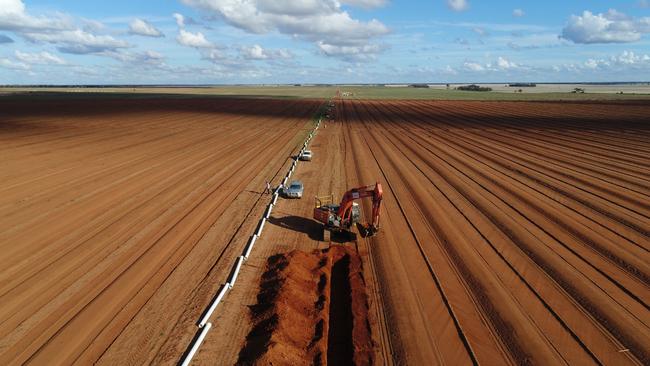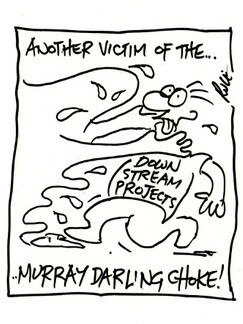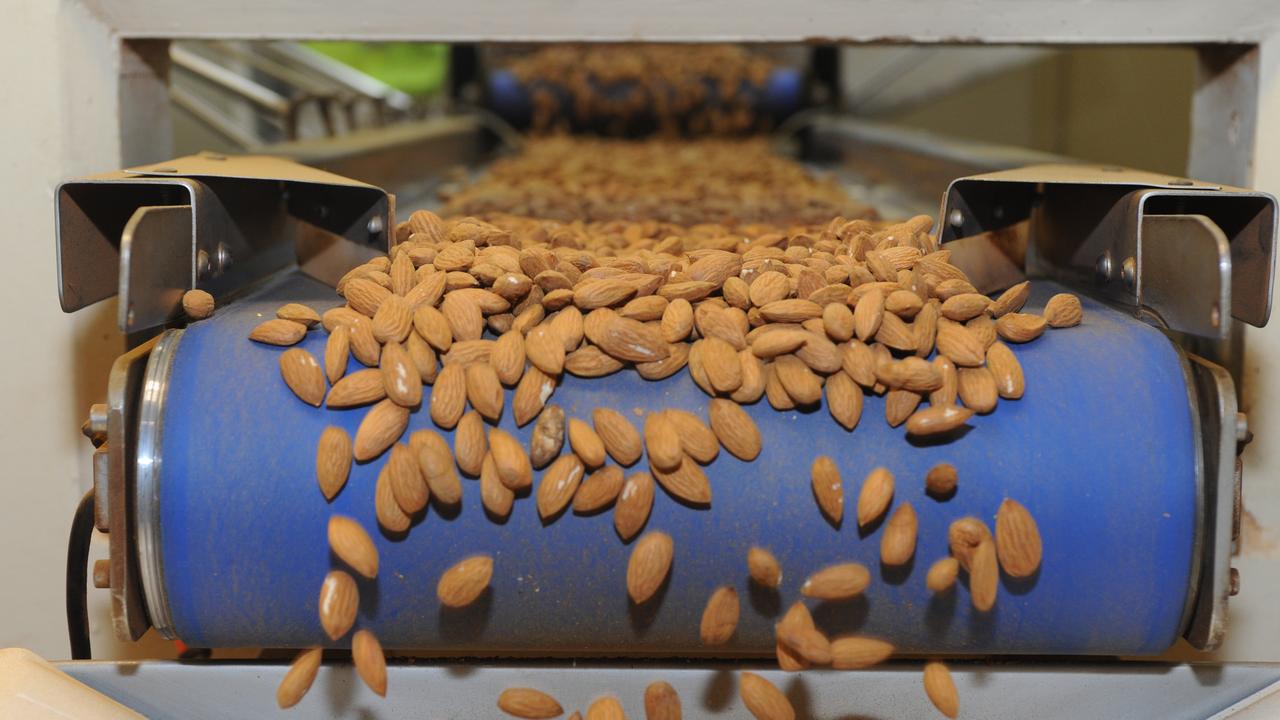Irrigators want halt on water-use licences below Murray Darling choke
TABLE grape and citrus growers are considering joining the almond industry’s call for a moratorium on issuing new water-use licences below the Murray Darling choke, bringing all new development proposals to a halt.

TABLE grape and citrus growers are considering joining the almond industry’s call for a moratorium on issuing new water-use licences below the Murray Darling choke, bringing all new development proposals to a halt.
The Almond Board of Australia made the call in response to repeated warnings from the Victorian Government’s water managers that they would struggle to get enough water through the choke if horticulture’s growing thirst was left unchecked.
“Each state and region wants development in their area, but the capacity to move water along the rivers is limited and unlimited expansion could jeopardise surety of supply to existing growers,” Almond Board of Australia chief executive Ross Skinner said.
He said a moratorium should apply to all new water-use licences for greenfield irrigation developments in the southern Murray-Darling Basin, pending a review of the system’s capacity to support more development without adverse effects.

Citrus Australia chief executive Nathan Hancock said while the board was yet to consider the Almond Board’s call he had “read the paper and think generally we’d support what they’re calling for”.
Australian Table Grape Association boss Jeff Scott said the moratorium was on the agenda of its next meeting.
Unchecked growth could see horticulture’s demand for water, below the choke, in NSW, South Australia and northwest Victoria grow by 400,000 megalitres over the next 5-10 years, according to the Victorian Water Register.
The ABA also released its broader water strategy, which includes calls for:
AN ACCC inquiry into water market trading rules, including the existence of, or potential for, non-competitive conduct by non-water using investors;
A UNIFIED water register and clearance platform combining all the state-based registers to provide transparent and “real-time” market information and the application of consistent rules across the southern connected Murray-Darling Basin;
REGISTRATION and regulation of water brokers, similar to sectors such as real estate and stockbroking; and
RESOLUTION of outstanding Murray-Darling Basin Plan implementation issues identified by the Productivity Commission, such as constraints, before further water recovery from the consumptive pool.
Mr Skinner said there was growing concern the water market was being used to generate revenue for non-water-using investors.


